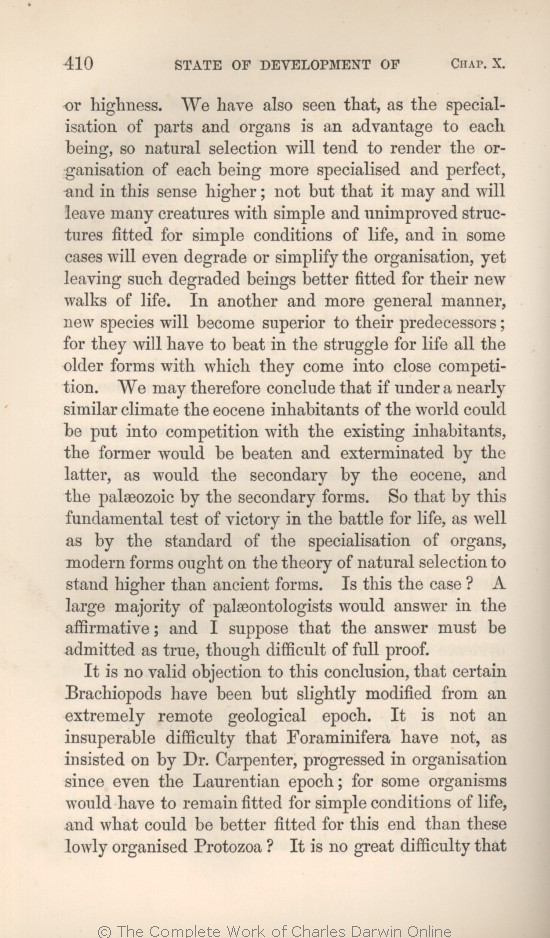or highness. We have also seen
that, | that, 1866 1869 1872 | | that 1861 |
| and organs 1861 1866 1869 | and organs 1872 |
| tend 1866 1869 1872 |
| constantly tend thus 1861 |
| and will 1861 1866 1869 | and will 1872 |
| 2 blocks not present in 1861 1866 1869 1872; present in 1859 1860 | | There has been much discussion whether recent forms are more highly developed than ancient.
I will not here enter on this subject, for naturalists have not as yet defined to each other's satisfaction what is meant by high and low forms.
|
| 1 blocks not present in 1859 1860 1861 1866 1869 1872; present in | |
|
| ought 1861 1866 1869 | | ought, 1872 |
| selection 1861 1866 1869 | | selection, 1872 |
| ..... 1869 1872 | | certainly 1861 1866 |
| and I suppose that the answer must be admitted as true, though difficult of full proof. 1869 |
| but in my judgment I can, after having read the discussions on this subject by Lyell, and Hooker's views in regard to plants, concur only to a limited extent. 1861 |
| but in my judgment I cannot, after having read the discussions on this subject by Lyell, Bronn, and Hooker, look at this conclusion as fully proved, though highly probable. 1866 |
| and it seems that this answer must be admitted as true, though difficult of proof. 1872 |
|
It is no valid objection to this
conclusion, | conclusion, 1869 1872 | | conclusion 1866 |
| OMIT 1869 1872 |
| or to the general belief that species in the course of time change, 1866 |
| epoch. 1869 |
| period, although no explanation can be given of this fact. 1866 |
| epoch; and that certain land and fresh-water shells have remained nearly the same, from the time when, as far as is known, they first appeared. 1872 |
| OMIT 1869 1872 |
| progressed in organisation, 1866 |
| progressed in organisation since even 1869 1872 |
| since that most ancient of all epochs 1866 |
| epoch; 1869 1872 |
| formation of Canada; 1866 |
| could be better fitted 1869 1872 |
| better 1866 |
|









